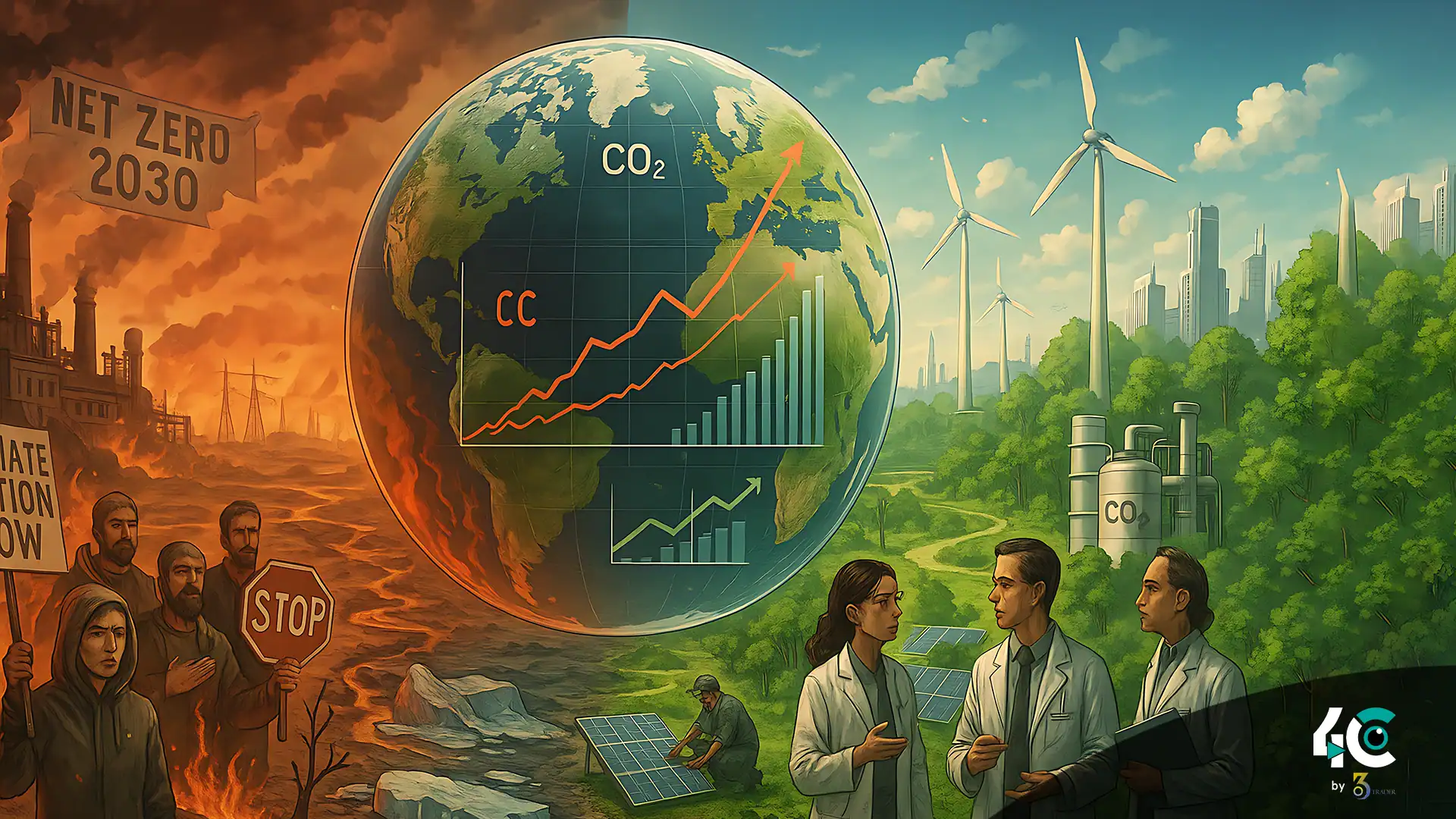Missing the Point: The Harsh Reality of Net Zero Deadlines
A make-or-break milestone for climate action is the year 2030. Across the world, governments and businesses are planning to cut carbon emissions to “net zero,” or balancing what they emit with what they take back.
The truth hangs in the air these days. Many of those promises you’re reading about—whether it’s net zero or halving emissions by 2030—are underpinned by flawed assumptions, corporate greenwashing, and political foot-dragging.
So why is the 2030 net zero push failing? And what actually works to combat climate change?
Why Net Zero 2030 Is Doomed to Fall Short
1. The Math Doesn’t Add Up
The world will warm up 2.5 to 3 degrees Celsius by 2100, according to current policies. This exceeds the Paris Agreement‘s 1.5°C target.
To achieve net zero by 2030, worldwide emissions must drop 7.6% annually. Instead, they’re still rising in many sectors.
2. Corporate Greenwashing Is Running Rampant
Many net-zero pledges rely on carbon offsetting, such as planting trees, rather than actual emissions cuts.
Investigations reveal that up to 90% of offsets are worthless or fraudulent.
3. Political Short-Termism Kills Progress
Governments favor the economy over climate change, especially after the pandemic.
In 2022, the transition to clean energy was undermined by fossil fuel subsidies of $7 trillion.
4. Technology Alone Won’t Save Us
Carbon capture, hydrogen fuel, and other ‘silver bullets’ won’t scale up fast enough or affordably enough by 2030.
We already have 80% of the necessary climate solutions—they’re just not being deployed quickly enough.
What Actually Works? Science-Backed Climate Solutions
1. Stop Pretending Offsets Work
Eliminate tax breaks for fossil fuels and require businesses to report their carbon footprint.
2. Speed Up the Obvious Fixes
The least expensive energy sources today are solar and wind; increase deployment threefold.
It is possible to retrofit buildings, expand public transit, and cut methane leaks.
3. Rethink Economic Growth
GDP-focused models drive overconsumption. If developed countries embraced degrowth strategies, it could slash emissions and not lower wellbeing.
4. Prepare for Adaptation, Not Just Mitigation
Even with aggressive cuts, some warming is locked in. Support flood protection, drought-proof crops, and climate refugee measures.
Stop Wasting Time On Foolish Deadlines
Net Zero 2030 was always more PR than reality. Instead of empty pledges, we need:
- Timelines that are honest: 2040–2050 for most nations
- Regulations that are stringent and effective
- A move from mindless consumption to sustainability
Global warming won’t be solved with merely dates but with action from us starting now.



























